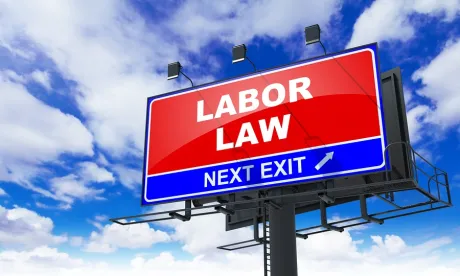On day one of his administration — and within hours of being sworn in — President Joe Biden made significant changes at the National Labor Relations Board (NLRB). After Peter Robb, the Board’s Trump-appointed general counsel (GC), refused a request to resign, Biden fired him. The following day, the Biden administration fired deputy general counsel Alice B. Stock after she, too, refused to resign from the Board. At the same time, Biden named Lauren McFerran, the only Democratic member of the Board, as chair, replacing Republican member John Ring.
The Controversy Behind Robb’s Dismissal
Robb was appointed to a four-year term in November 2017, and he is the first GC to be removed by a president before his term ends. During Robb’s tenure, he advanced many employer-friendly initiatives and advocated for Board decisions that expanded management’s rights. He quickly drew the ire of organized labor, clashing with many union leaders while also exerting more control over the Board’s regional offices nationwide. His removal had been rumored in Washington, D.C., for months prior to Biden’s inauguration.
Biden’s decision to fire Robb is controversial not only because it is unprecedented but because it may also come under attack in court. The National Labor Relations Act (NLRA) states that the GC “shall be appointed by the president, by and with the advice and consent of the Senate, for a term of four years.” While the NLRA includes conditions for firing Board members, it includes no similar conditions for removing the GC. The Biden administration likely found support for its decision to fire Robb in a Supreme Court decision from June 2020, Seila Law LLC v. Consumer Financial Protection Bureau (CFPB), 591 US __ (2020), which affirmed the president’s authority to fire the head of a federal agency.
In Seila, the Court affirmed the president’s power to dismiss the director of the Consumer Financial Protection Bureau, an independent federal agency similar to the NLRB, and struck down a legal provision which provided that the director was removable only for inefficiency, neglect or malfeasance. The Court concluded that the Constitution provides the president with the power to supervise and to remove lesser executive officers who wield executive power on his behalf under Article 2 of the Constitution, and Congress may not restrict this power except for in two circumstances — which were not applicable in Seila, and would similarly not be applicable to the NLRB.
It is unknown at this time if Robb will challenge the president’s decision to fire him. Even if he does not, this unprecedented move provides fertile ground for management-side labor lawyers to argue in future cases that the acting GC lacks the power to take actions like authorizing unfair labor practice complaints.
The Beginnings of a New Labor Management Landscape
Amid his ousting of Robb and Stock, Biden named McFerran, who has been serving on the Board since 2014, as chair of the Board. McFerran is the only Democrat on the five-member Board and serves alongside Republicans Marvin Kaplan, Bill Emanuel and Ring, with one vacancy which Biden is expected to fill with a Democrat. McFerran has distinguished herself in the last several years by writing sharp dissents to controversial decisions and regulatory initiatives made by the Board’s Republican majority, including such issues as joint employment, unilateral changes standards and worker misclassifications.
These immediate changes at the NLRB, while not surprising, will have a direct and speedy impact on labor management issues. Employers should expect many changes from the NLRB in 2021.





 />i
/>i

